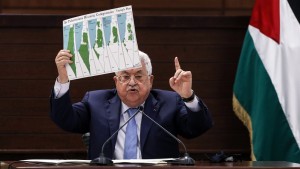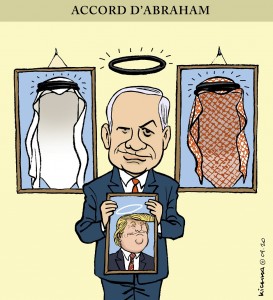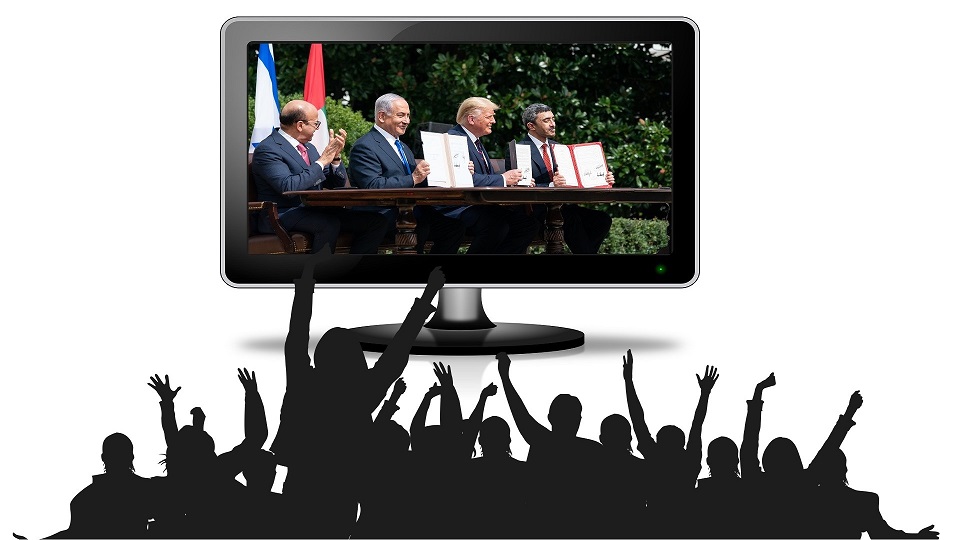The Unholy Alliance
Like many other flabbergasting happenings in international arena such as US-Iran clashes after the killing of Qassem Soleimani, hyper politics between China and the United States over Covid-19, etc., the year 2020 brought a new twist in international relations. The event that has re-ordered the Middle East diplomacy is an astonishingly unholy US-brokered deal which was signed between the United Arab Emirates (UAE) and Israel. The UAE has become the third country to have full normalization of relations with Israel, after Egypt and Jordan in 1979 and 1994, respectively.
The announcement of “no more covert” relations has given rise to a new order in the Middle East, and has also ignited a debate in the Muslim world over the legitimacy of the deal and uncertain future of the rights of the Palestinians. The deal, also known as the “Abraham Accords,” came as a kiss of death to the two-state solution agreed upon previously for Palestinians until any peace deal was signed. Even more intriguing fact is the endeavours of Benjamin Netanyahu, the Israeli Prime Minister, to annex the Jordan Valley and West Bank under the garb of his boasting to suspend rather than end annexation, in fact denying the previously agreed claims of land for Palestinians in case a peace deal came forth. The move, which is aimed at serving its strategic vested interests either economically or politically, is undoubtedly a blatant effort on the part of UAE. This also allows Emirates to have a dominating edge over countries like Qatar and Iran as a strong opponent in the region, and sideline the role of Turkey after becoming a US ally and a diplomatic partner of Israel. Through this deal, it also is now in a position to wield a military clout in collaboration with Israel that would enable it to enforce its assertive foreign policy in countries like Yemen as a US ally against Houthis. While making this alliance, UAE either failed to realize or rather ignored that the matter is not entirely between Israel and UAE. In fact, what is at stake is the entire Middle East. Digging deep, it is evident that this unholy alliance paves the way for the permanent annexation of the West Bank which was seized during the Six-Day War in 1967 along with many other important sites that have strategic and religious significance.
Where on the one hand, the Abraham Accord has created opportunities for Israel and repercussions for Palestine, there are other stakeholders, too, on the other hand, that are connected directly or indirectly given its implications on a broader level. Among Gulf States, Saudi Arabia and UAE have shared interests of becoming regional powers by getting closer to the United States to counter a rising Iran and gain leverage over Turkey as well. Interestingly, Israel serves as a significant bridge for their endeavours since its ambitions are somewhat similar to those of GCC nations in the Middle Eastern region. The UAE, influenced by its vested national interests felt extreme ease while pledging recognition and normalizing diplomatic relations with Israel. Contrary to it, the KSA, which boasts to be the saviour and custodian of Islam’s holiest places, was cautious to comment on this historic deal. This reticence of KSA is merely interest-oriented since international politics between KSA and the US draws the former closer to Israel.
The most pertinent question that begs attention is: why most Arab nations are either getting closer or aspiring to normalize relations with Israel? The answer lies in multiple geo-economic, geo-strategic and geo-political factors that are in place and have transformed these aspirations into this unholy and erstwhile unlikely peace accord.
Firstly, economic re-orientation of Arab nations and the pursuits of moving away from oil-based economies have convinced GCC nations to seek normalization of relations. Vision 2030—’Economic Diversification Plan 2030’—by Crown Prince Mohammed bin Salman is a case in point.
Secondly, Arab nations are aspiring to benefit from Israeli expertise in cybersecurity, surveillance technology, manufacturing, precision missiles and biotechnology. Yet some of the illustrations are the ambitious collaboration of Israel with KSA to launch ‘Megacity’ and technology transfer with UAE. Creation of ‘Silicon Wadi’— a would-be equivalent of Silicon Valley in the Middle East Region—among GCC countries by the help of Israel is yet another ambition of Arab states.
Thirdly, ‘regime consolidation’ is the significant aim of countries in West Asia. Since, UAE, Bahrain and KSA are autocratic regimes; they have a vigilant eye on how to avert another Arab Spring that might favour democracy and threaten their entrenched rule. This can only be ensured by having a strong external backing by Israel and the United States.
Moreover, to build their ‘regional and international stature’, these countries need to harmonize their relations with Israel and the United States, the pursuit that UAE and KSA are determined for and marshalling efforts towards.
Finally, full formal relations are also meant for ‘political re-alignment’ among Arab nations in alliance with USA and Israel to target not only the revolutionary Iran—the ultimate shared enemy of entire Middle East, save Qatar—but also sideline assertive Turkey which is aspiring to lead the Muslim world despite enjoying a NATO-ally status and diplomatic relations with Israel. Subsequently, these developments have attracted and enticed other Arab nations to either follow the suit like Bahrain did by normalizing diplomatic relations with Israel or be like KSA and Oman that have given a tacit approval in the form of their affirming reticence.
Meanwhile, American backing of the move under the stewardship of Donald Trump reflects several objectives. The year 2020 marks the tough election between Donald Trump and Joe Biden, with the latter being ahead in public polls. Trump needs enough clout to win the election. It is ironic that Trump has ignited the issue at a moment when he is going to see a tough presidential election. Gaining a diplomatic victory that is congenial to Israeli interests would definitely favour Trump. Being a Republican gives him leverage against Democrats since Obama, being a Democrat, was not much appreciated in Israel since he showed negligible interest and marshalled least efforts towards promoting Israeli interests. Similarly, Trump’s efforts of catalyzing peace deals could also serve as an impetus to exploit the pro-Israeli sentiments among American-Jewish population and attract party funding or campaign donations from Israeli lobby. This is an established fact that the backing of Israeli lobby serves as a decisive factor in achieving victory in a presidential election. Apart from that, if general American economic interest is viewed, backing Israel by GCC countries effectively boosts the US weapons industry and thus economy through its sale to Arab countries at a larger scale and ultimately its economy while averting any scrutiny by Israel previously fearing its use against itself.
Analyzing the current developments in West Asia, it seems that economic and politico-strategic interests have overwhelmed the religious brotherhood since international relations are based on interests, and not sentiments. There is no permanent friend or foe in international relations. International politics is aligned on the basis of national interests only. Regarding consequences of the Accord, it is glaringly evident that at the local level, this would inflict huge damage to the Palestinians, depriving them of their basic rights and territory since the two-state solution will be irrelevant if other countries in the region follow the suit. At regional level, Iran is expected to face staunch opposition given the combined hostility of Israel, the US and Arab countries against its growing regional clout and nuclear aspirations. In coming weeks and months, the world may see further Arab nations pursuing their own national interests at the cost of religious affiliations and human rights. On the contrary, Pakistan has shown a vivid clarity in its stance of standing for its Palestinian brethren and respecting their human rights by attaching its recognition of Israel to a peace deal that is accepted by Palestinians, the actual stakeholders.
The author is a PAS officer from 48th CTP.
 Jahangir's World Times First Comprehensive Magazine for students/teachers of competitive exams and general readers as well.
Jahangir's World Times First Comprehensive Magazine for students/teachers of competitive exams and general readers as well.



